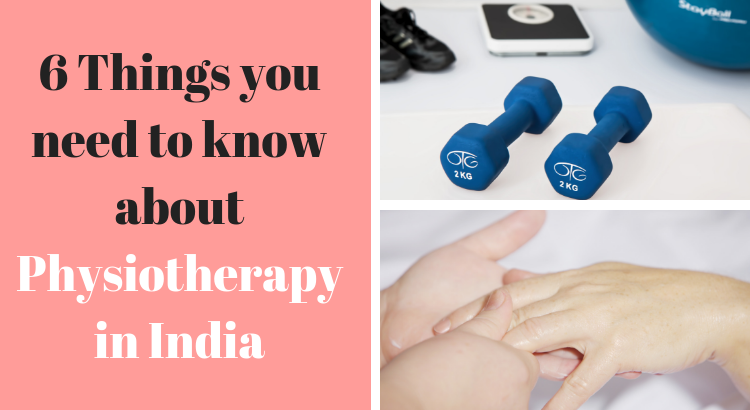Have all these questions about pursuing Physiotherapy in India? Are physiotherapists doctors? What are the subjects included in Physiotherapy?
Aishwarya Aiyar a final year Bpth student answers questions and busts myths about physiotherapy in India in this article.
” A physiotherapist has got the brain of a scientist, the heart of a humanist and the hands of an artist!”
1. What is Physiotherapy and Who are Physiotherapists?
Physiotherapy is an applied branch of medicine that deals with the human body using scientific & bio mechanical approaches to prevent, assess, diagnose and treat various diseases and disorders.
As per the WHO classification of health workers, ISCO code 2264, ” Physiotherapists are independent professionals who assess, plan, implement rehabilitative programs that improve or restore human motor functions, maximize movement ability and relieve pain syndromes”
2. What is the Scope and Work profile of physiotherapists?
A broad range of physical therapies and interventions (manual therapy, joint and soft tissue mobilization, therapeutic exercises, electrotherapy- US, SWD, IR) are used to improve strength, balance & co ordination, gait, posture, endurance, agility, fitness, functional mobility and provide pain relief. Physiotherapists work in inpatient/outpatient centers, hospices, fitness centers, private practice, hospitals, sports field , oncology centers and in centers of women and child health.
3. What will I learn during my course of Physiotherapy in India?
A bachelor’s degree consists of a 4 year academic course along with 6 months internship.
The academic course comprises of a comprehensive study of Human anatomy, physiology, biochemistry, pathology, microbiology , psychology, psychiatry, pharmacology, kinesiology , electrotherapy, kinesiotherapy , general medicine, orthopedics, obstetrics & gynecology, dermatology, general surgery, community medicine , bio engineering , bio statistics,and the clinical relevance of these subjects in physio therapeutic diagnosis and treatment.
A master’s program is of 2 years which depends on the specialization and university chosen for study! PhD programs and fellowships from various universities are also available.
4. Are Physiotherapists Doctors?
Well, as per the circular of 2011 by the, ” Indian Association of Physiotherapists” , physiotherapists are entitled to use ” Dr” post their Undergraduate course with the suffix PT after their names. At the state level , for example, in Maharashtra physiotherapists have to register under the State Occupational therapy and physiotherapy council , post which their license and registration numbers are allotted to regulate this profession in Maharashtra. Neither the Indian Medical association nor the Medical council of India have statutory powers to control this profession in India .
5. What can I specialize in after doing Physiotherapy?
- Pediatrics
- 2.Women’s Health
- Geriatrics
- Clinical Electrophysiology
- Cardiovascular and Pulmonary
- Neurology.
- Orthopedics/ Musculoskeletal
- Sports
- Oncology
- Community Based Rehab
6. Role of physiotherapy in Health & Disease.
Physiotherapy aims at making the maximum possible use of mobility and limit disability with the foremost goal of making the patient as functionally independent as possible. Various lifestyle modifications , counseling , manual therapies, therapeutic exercises, electrotherapy modalities and aids such as wheelchairs, calipers are used to improve the quality of living of the patient. To conclude
Physiotherapy does not add years to life, but definitely it does add LIFE to years!
This article has been written by Aishwarya Aiyar who is a final year physiotherapy student at Seth GS Medical College, Mumbai, India.
You can Contribute articles too! Check out our contribute page!
[jetpack_subscription_form title=”Like this article?” subscribe_text=”Subscribe for FREE and get articles directly to your inbox. Never miss an update” subscribe_button=”Subscribe FREE”]
